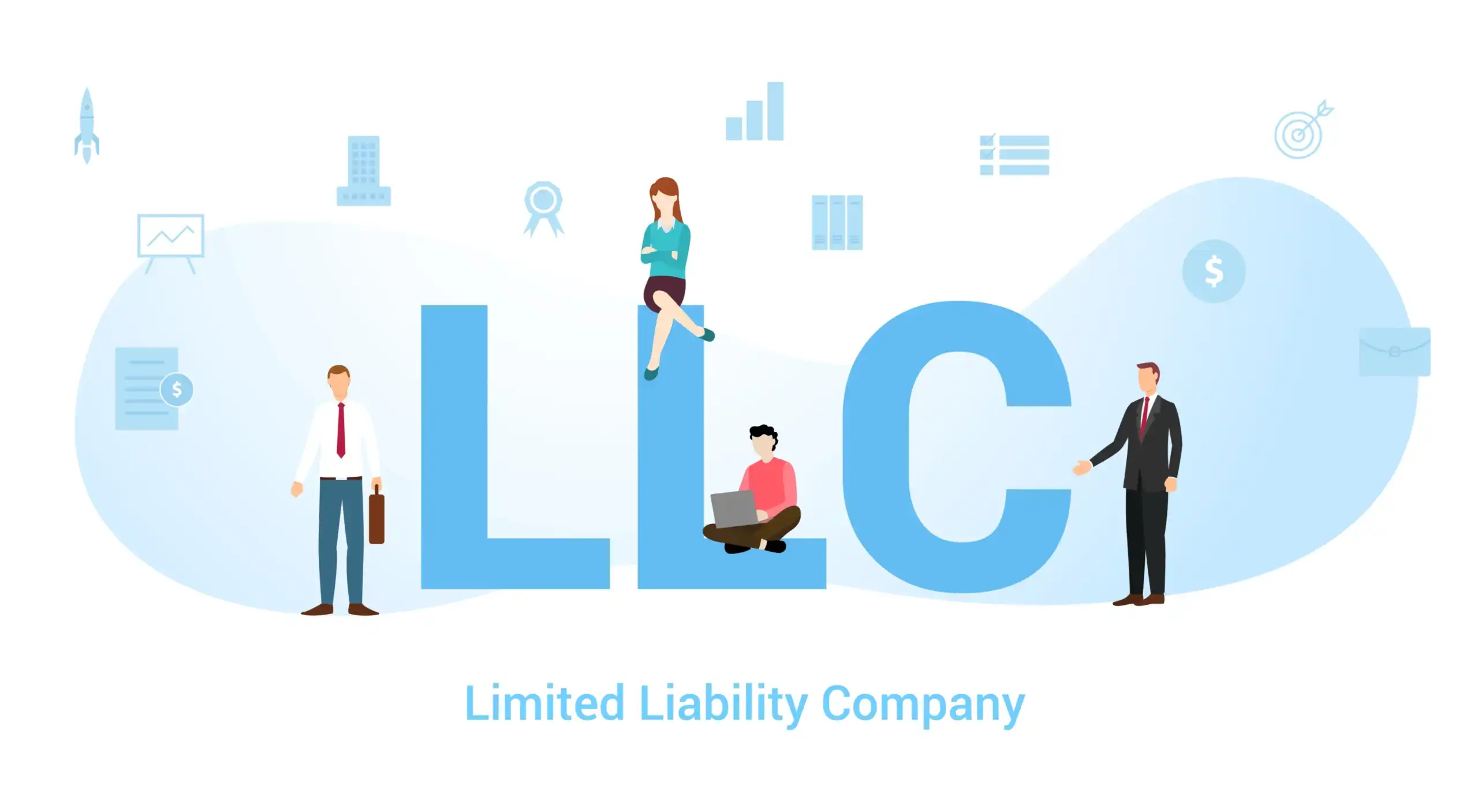Accumulating large fortunes is an impressive feat, but keeping them intact through generations is a completely different thing. Effective wealth management is more than just amassing wealth; it involves active, strategic risk management to protect your financial legacy against lawsuits, market fluctuations, unforeseen personal events, and changing economic environments.
Wealth preservation risk management is all about three actions: recognizing a possible threat, evaluating the effect of that threat and effective measures to counteract the threat. It is always important to take a holistic approach in order to be able to guarantee the security of the wealth you have been able to accumulate over the years and make sure that it is stable and able to grow to future generations.
Here, in this guide, we will merge the best ideas of various expert opinions into one blueprint that you can trust.
Learn what Risk Management is
Prior to the application of any strategies, it is important to comprehend what risk management is all about. Risk management at the most basic level is the process of recognizing, evaluating and countering the risks that may have adverse effects on your financial well-being.
Such risks may be in a variety of shapes and forms, including the most apparent ones such as market crashes and lawsuits to less concrete issues such as family conflicts, ineffective tax planning, or unexpected medical incidents. An effective risk management strategy covers a broad spectrum of risks and assists in keeping one event or incident from shaking your whole financial world.
To Minimize Risk, Diversify Your Portfolio
One of the most basic rules of efficient risk management is that of diversification. Being over focused on one asset class or even one market may subject your wealth to excessive risk should that part of the market decline.
To reduce this, diversify your investments among:
- Types of Assets: Stocks, bonds, mutual funds, ETFs, private equity, hedge funds, and other alternative investments such as commodities or art.
- Sectors and Industries: Do not invest all your money in a single industry (e.g., tech). Whole sectors can be caught unawares by economic changes, regulation or disruptive innovations.
- Geographic Regions: The International investments offer an additional level of diversification, which cushions you against country specific risks such as abrupt legislations, political uncertainties or regional economic crashes.
Liquidity is also enhanced by diversification. Although you need to have some illiquid assets to provide growth opportunities, e.g. in the form of private equity or real estate, sufficient liquid investments will help you to cover unexpected costs without jeopardising your long-term plan.
Install Total Insurance Coverage
Insurance is the economic cushion that saves you and your family against disastrous losses. Although simple life, health, liability and property insurance are necessary, wealthy families tend to require more specialized cover to deal with complicated risks.
You might want to include the following in your wealth protection toolbox:
- Umbrella Liability Insurance: Provides additional coverage to the usual home, auto or recreational vehicle coverage, insures against significant legal actions that may jeopardize personal assets.
- Broad Personal Insurance: This insures high-value homes, art, jewelry, collectibles, luxury cars and may have worldwide liability or flood insurance.
- Workers Compensation & EPLI: When you hire household help make sure you have Workers Compensation and Employment Practices Liability Insurance to cover the risk of employment litigation.
- Medical Evacuation Travel Insurance: This covers against the expensive emergency in the foreign country especially when a person travels frequently.
- Key Person Insurance: This policy can be purchased in case of a business. This covers financial loss in a case of death or incapacitation of a very important team member, founder or owner.
- Specialty Coverage: Kidnap and Ransom Insurance, Directors and Officers (D&O) Liability Insurance, and Family Office Coverage are policies that high-profile families might require to address their special risks.
Insurance, when applied properly, can turn uncontrollable risks into manageable, predictable expenses.
Build Legal Constructs to Protect Wealth
Legal entities may be crucial in the separation of your personal wealth and possible liabilities as well as creditors. Typical structures are:
- Limited Liability Companies (LLCs) and Limited Liability Partnerships (LLPs): These entities are able to own real estate, bank accounts and business interests. They assist in protecting personal wealth against business lawsuits and obligations.
- Family Limited Partnerships (FLPs): These are helpful in consolidating asset management, enhancing estate and gift tax efficiency, and shielding assets against personal creditors.
- Trusts: Irrevocable trusts, including Dynasty Trusts, Spendthrift Trusts, or Grantor Retained Annuity Trusts (GRATs), shield assets against creditors and lawsuits, facilitate the transfer of the estate, and reduce estate taxes.
Trusts can be very effective in preserving multi-generational wealth but they can be legally and tax complex, you must always consult an experienced estate attorney to structure your trusts in a way that fits your unique objectives.
One of the greatest risks to wealth retention is taxes when they are not controlled.
Expert tax planning is able to assist you in paying less tax in liability and remain within the compliance of the dynamic taxation framework.
Notable strategies are:
- Annual Gifting: Take advantage of the annual federal gift tax exclusions (19,000 per recipient in 2025) to gift wealth free of tax and lower your taxable estate.
- Charitable Gifts: Strategic giving can reduce your tax liability and fund causes that are important to you.
- Tax-Advantaged Accounts: Contribute as much as possible to 401(k)s, IRAs, or Roth IRAs. In some states, you can even have creditor protection in some accounts.
- Tax-Loss Harvesting: Capital gains can be offset by selling poor-performing investments, which lowers your total tax bill.
Tax planning is an important element of any long-term wealth preservation strategy. Consult with a reliable tax professional to keep up-to-date with the evolving rules and to create an estate plan that aligns with your sources of income and estate planning objectives.
Stop-Loss Orders can be used to Mitigate Downside Risk
Stop-loss orders can be a useful risk management strategy of investors that is often disregarded. You can automatically restrict losses by predetermining the selling price of a security in case the value of an asset plummeted.
Stop-loss orders may seem negative, or even pessimistic, but in fact they would give you a disciplined method of avoiding the crippling effect of a sudden market crash on your portfolio. Stop-loss levels can also be set to accommodate the normal volatility in the short-term without being forced to sell too early.
Carry Out Proper Research and Due Diligence
Risks are not always large-scale market risks, there are risks in the specifics of a particular investment. Your due diligence is your shield against such surprises as undisclosed liabilities, ESG greenwashing, or unsustainable business models.
Study every asset: financials, management teams, competitive environments, and sustainability claims. The better you are informed, the easier it is to measure the real risk against the possible profit.
Invest in Analytical Tools and Technology
The current technology can significantly improve your risk management capability. Analytical tools that are powered by AI have the ability to process massive data within seconds and provide new information that may be overlooked by manual research. A lot of wealth management platforms are adding risk modules that monitor portfolio exposure, model scenarios, and provide red flags early.
But technology supplements, not replaces, your judgment, due diligence and professional advice. Apply it to make more and quicker decisions, but do not use it independently.
Review and Rebalance Portfolios on a Periodic Basis
Risk management is not a set it and forget it process. Markets fluctuate, and your family goals and risk tolerance changes. Arrange periodic portfolio reviews to:
Determine new risks.
Rebalance the asset allocations to keep it diversified.
Harvest tax-losses.
Make sure that investments are in accordance with your present and prospective requirements.
A portfolio consolidation tool can give you a big picture overview so that you can adjust with less effort when there is a need to.
Form Alliances and Consult with Experts
You do not need to struggle to figure out complicated wealth preservation strategies on your own. Refer to trusted advisors: estate lawyers, tax experts, insurance professionals, investment advisors, and niche professionals.
Enter into joint ventures with individuals that can fill in your expertise gaps be it international real estate, private equity, or ESG investing. This teamwork will make sure that you are not caught off-guard by the dangers that are outside your line of expertise.
Have an Emergency Fund
However advanced your investments and legal structure are, liquidity plays a crucial role in absorbing any unexpected shocks. When you have an emergency fund, you can have the freedom to meet unexpected expenses such as health emergencies or emergency repairs without the need to liquidate your investments at the wrong time.
The majority of advisors suggest maintaining between six to twelve months of living expenses in accessible accounts, but families with high net worth can opt to hold more in cash or short term bonds depending on their lifestyle and responsibilities.
Final Words
Smart investing is not the only way to protect your wealth, it requires careful and pro-active risk management as well. Spreading your investments, good insurance, proper legal frameworks, wise tax planning, research, the best tools, a decent cash buffer in case of emergency, and good advice will keep your assets safe and growing through the generations. Your case is special and needs a plan that is tailored towards you. Collaborate with reliable professionals who genuinely know what you want and what you stand by. Let The Finance Focus assist you to safeguard what you have created, so you and your family can have the peace of mind that lasts.





